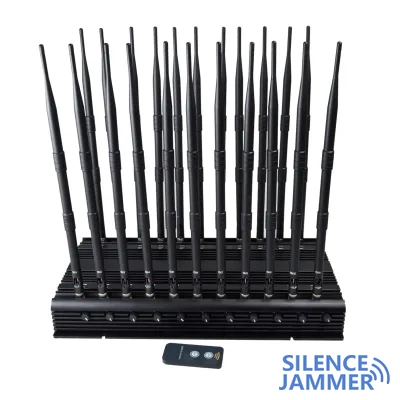In recent years, the technical equipment of criminal gangs has been continuously upgraded, and the use of signal jammers has become increasingly common. signal jammerThe case of the Tania N. gang reveals how criminals use these devices to carry out illegal activities. cell phone jammer This article will analyze in detail the working principle of signal jammers, their application in criminal activities, and relevant legal provisions.GPS jammer
1. The basic principle of signal jammers
A signal jammer, also known as a signal suppressor or interceptor, is a device that can block communication signals. It interferes with the communication network by emitting strong electromagnetic waves, making mobile phones, GPS, radio communications and other devices unable to work properly. Criminal gangs use this technology to prevent the monitoring equipment of public security agencies or security companies from receiving signals, thereby covering up their criminal activities.
In the case of Tania N. and her gang, the use of signal jammers was revealed to be installed in the house where they were active. The device can block the police’s positioning and tracking, thereby helping criminals remain hidden when committing crimes. This behavior not only challenges the police’s investigative methods, but also increases the chances of success for their criminal activities.
2. Specific application of signal jammers in criminal activities
Signal jammers are particularly common in criminal activities in Mexico, especially in motor vehicle robberies carried out on highways. Criminals use jammers to prevent vehicle anti-theft systems from sending alarms to security companies or police, thereby successfully completing the theft. In addition, jammers are widely used in crimes such as kidnapping, extortion and armed robbery to evade police tracking.
In the case of Tania N., this device was not only used to protect the criminals’ actions from police monitoring, but may also be used in conjunction with other illegal equipment and weapons. For example, the gang also had weapons and other high-tech equipment, indicating that they not only rely on jammers to protect their activities, but also prepare for possible conflicts.
3. Legal framework of signal jammers
The Mexican federal government passed the Anti-Interference Law in 2020, which clearly prohibits the manufacture, sale, carrying or use of signal jammers except for specially authorized agencies. Anyone who violates this law will face severe penalties, and the use of jammers can be sentenced to up to 15 to 18 years in prison.
In addition, the legal use of jammers is limited to secure places such as reintegration centers and prisons to ensure the safety of these places. However, Tania N. and her gang violated the law by illegally possessing and using jammers, and therefore faced more severe legal sanctions.










